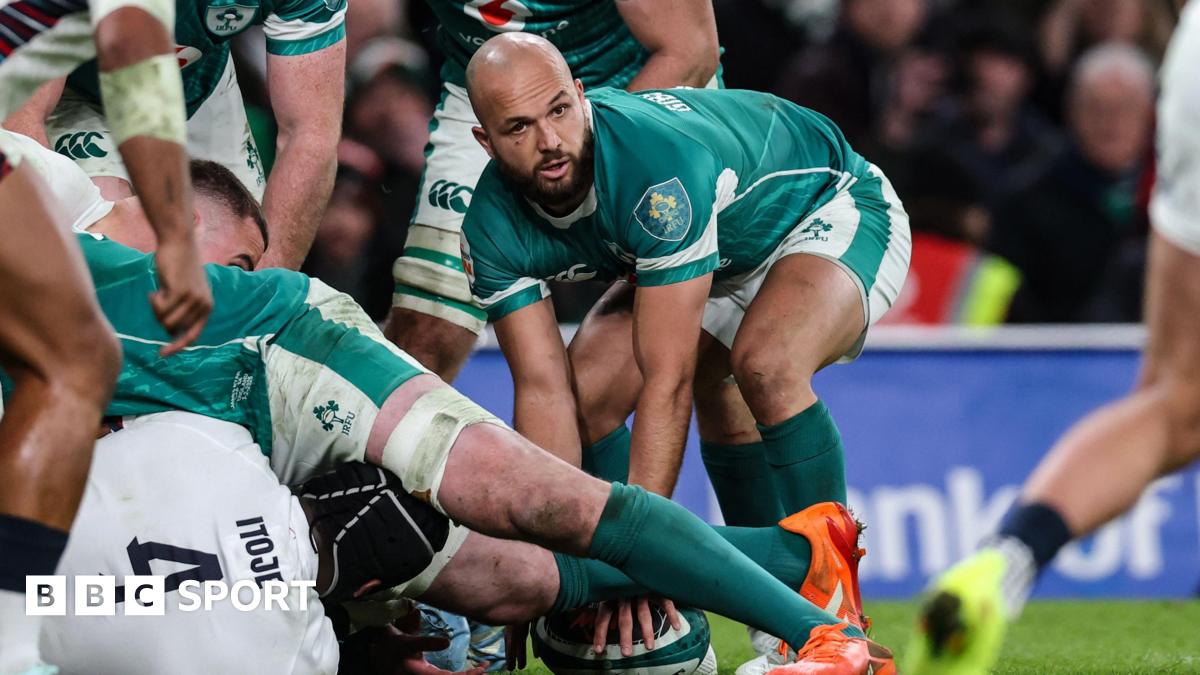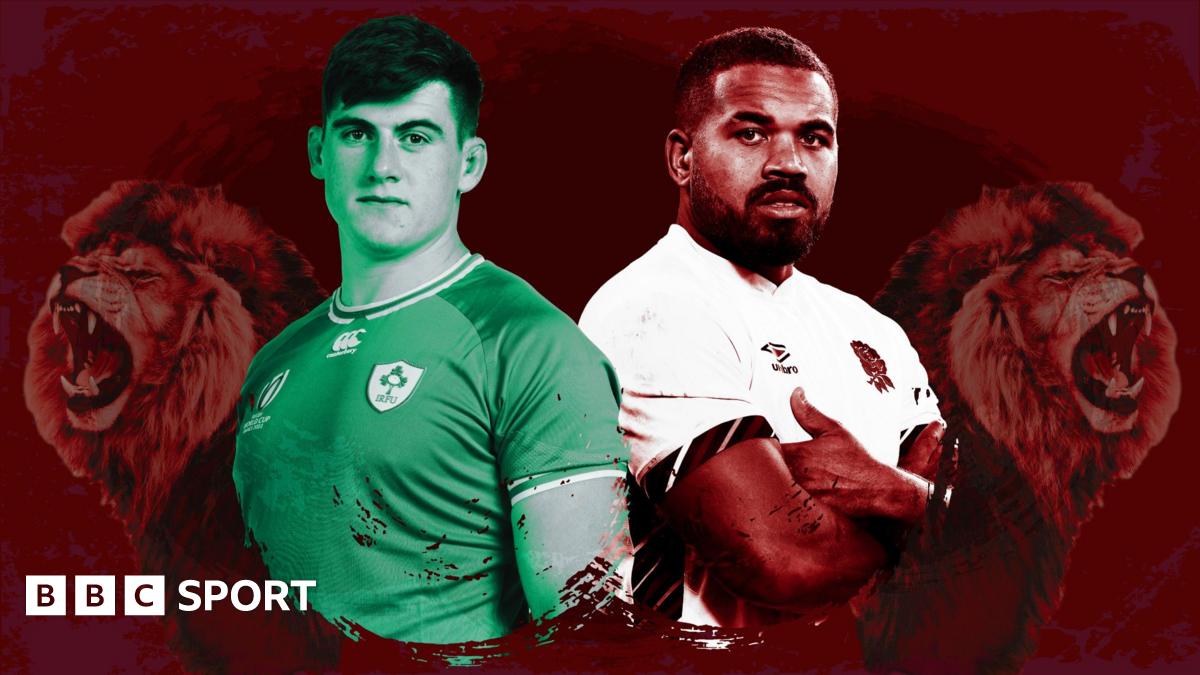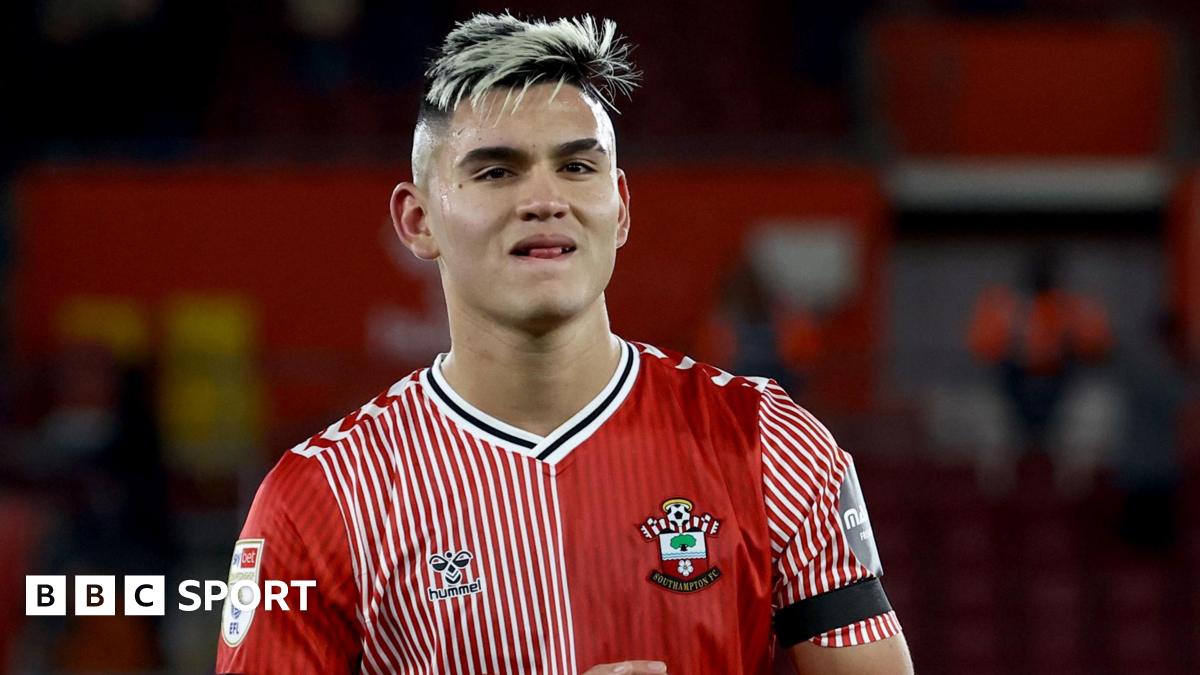ARTICLE AD BOX
 Image source, BBC Sport
Image source, BBC Sport
Premier League clubs spent around £370m in the winter transfer window, significantly up on the £100m paid out last year, with Manchester City spending almost as much as the other 19 top-flight teams combined.
While spending is up, it is still way down on the 2023 record of £815m.
The £50m signing of midfielder Nico Gonzalez from Porto just before Monday's 23:00 GMT deadline took Manchester City's total spending to around £180m as manager Pep Guardiola was given the backing to try and save the defending champions' domestic campaign.
City's is the second-highest spend in a winter window ever, behind Chelsea in 2023, who spent £275m.
Manchester City spend big to rescue their season
This season has not gone to plan for Manchester City.
A dreadful run of form in November and December during which they lost six out of eight Premier League games saw their hopes of defending the title once again all but ended.
Meanwhile, hanging over them is the outcome of the 115 charges they face for allegedly breaking the financial rules of the Premier League, which is expected soon.
But despite that, they made the biggest moves during the winter window, signing Eintracht Frankfurt's Omar Marmoush for £59m, Palmeiras' Vitor Reis for £29.6m, and Lens' Abdukodir Khusanov for £33.6m before completing their business with £50m Gonzalez just before Monday's deadline.
They also signed Argentina Under-17 midfielder Claudio Echeverri for £12.5m but immediately loaned him back to River Plate.
Despite the outlay of around £180m, their net spend for the 2024-25 season so far stands at £67m, helped by the departure of Julian Alvarez to Atletico Madrid last summer for an initial £64.4m, while defender Joao Cancelo moved to Saudi Pro League club Al-Hilal in a £21.2m deal.
It is rare for Manchester City to spend big in the winter window but this has been the most they have laid out since the £225m in the 2017 summer window.
"Manchester City have been very successful financially over recent years," football finance expert Kieran Maguire told BBC Radio 5 live.
"Under these profitability and sustainability rules, you are allowed to lose £105m over a rolling three-year period. Manchester City have probably made somewhere in the region of £160-170m worth of profit because there has been an awful lot of players leaving the club - as well as the benefits of qualifying for Europe every year, the bonuses from sponsors and broadcasters for winning all of these trophies.
"From a financial perspective, they are in a really strong position."
On the charges looming over them, Maguire added: "The 115 charges relates to the period 2009-2018, so that, to a certain extent, is ancient history.
"When it does come to pass that we get a judgement, we will have to have a complete reset I think in what they can spend going forwards."
How did transfer deadline day unfold?
As is seemingly the case for many recent transfer deadline days, things were quiet until towards the end.
By 18:00 GMT - five hours before the window closed - just two deals had been done in the Premier League and both involved Brighton.
The first of those was the loan move of striker Evan Ferguson from the Seagulls to West Ham for the rest of the season, before Brighton later signed 19-year-old forward Stefanos Tzimas from Nuremberg for £20.8m.
A quiet transfer deadline day needs a saga with twists and turns, and that was provided by Axel Disasi.
The Chelsea defender initially wanted to stay and fight for his place but was told it would be better to leave.
Both Aston Villa and Tottenham emerged as suitors but Spurs quickly went cold on signing the France international after feeling he didn't want to join.
His agents then, seemingly out of nowhere, appeared to convince Disasi that Spurs was a better but they ultimately lost out to Villa, with a loan deal agreed with the club, although the move had yet to be confirmed by the 23:00 GMT deadline.
Villa, whose business before deadline day saw saw them sell Jhon Duran to Saudi Pro League side Al-Nassr in a deal worth up to £71m but bring in striker Marcus Rashford on loan from Manchester United, also added Spain midfielder Marco Asensio on loan from Paris St-Germain in the final few hours of the window.
As the 23:00 GMT deadline approached, bigger deals went through, led by Gonzalez's £50m move to City.
Other significant moves late in the day included Tottenham signing France Under-21s forward Mathys Tel from Bayern Munich on loan, while Crystal Palace signed full-back Ben Chilwell on loan from Chelsea.
Why have Man Utd done so little business?
It was a quiet window for Manchester United with just two players arriving and none on deadline day.
Patrick Dorgu was their main signing with the defender joining from Lecce for £25m. The other player to arrive was 18-year-old defender Ayden Heaven from Arsenal.
There were, however, some significant outgoings with Antony, who signed for United from Ajax in August 2022 for £81.3m, joining Real Betis on loan, while there was the aforementioned loan move for Rashford to Villa.
BBC Sport's chief football news reporter Simon Stone:
In the end, though head coach Ruben Amorim said the club would try to bring in new players on deadline day, the other element of his post-Crystal Palace assessment of Manchester United's transfer business held sway – do not repeat the mistakes of the past.
United did explore the loan market and there were discussions around Tel. But, according to United sources, the structure of the deal being offered did not make sense. They effectively felt they were taking a chance on a young player knowing if he did well, Bayern Munich would benefit from his increased value.
To United, that did not make sense.
But, according to Old Trafford officials, there is a wider point, namely avoiding what they felt were 'reckless and expensive risks' which is essentially how United have ended up in the mess Sir Jim Ratcliffe is trying to sort out.
The reality is, after years of heavy losses, United were not in a position to buy anyone, without selling someone for a profit.
Amortisation is not a word football supporters tend to use when they are chatting about the game. But essentially, it is the value of a specific player in terms of their cost and the length of time left on their contract. If a player is sold for above their 'value', it is profit and handy when it comes to PSR. If they are sold at a loss, it reduces the scope for spending.
That is essentially why Premier League clubs sell 'home-grown' players. For Manchester United, that would have meant academy graduates Alejandro Garnacho and Kobbie Mainoo - despite the fact Garnacho was signed from Atletico Madrid. The problem is Amorim wanted to keep the pair.
'Now or never' - Walcott on Rashford's move to Aston Villa
Expenditure has reduced this month with the bulk of Rashford and Antony's wages being paid by Aston Villa and Real Betis respectively. But that, presumably, is how they have managed to bring in Dorgu and Heaven.
Senior players Victor Lindelof and Christian Eriksen will presumably leave Old Trafford when their contracts expire in the summer. Rashford, a home-grown player, may depart also. Casemiro's value will have gone down as well.
It won't be perfect but United will be in a better position than they are now. That is their thinking.
The problem is the players they have don't appear capable of lifting them significantly from their present 13th position. Amorim is the one who has to wrestle with that.
Focus on youth over experience
Of the Premier League signings that were made in the winter window involving a fee, the average age of the signed players was just 20.5.
Bournemouth signed 19-year-old left-back Julio Soler and centre-back Matai Akinmboni, 18, while Brighton's three signings - Tzimas, Diego Gomez and Eiran Cashin - are 19, 21 and 23 respectively.
Manchester United's main winter window signing was 20-year-old, while defender Ayden Heaven is 18.
Meanwhile, Manchester City's four new arrivals have an average age of 20.5.
So far this season 54 homegrown players have made their top-flight debuts which, according to the Premier League, is tracking to be the highest since the introduction of the Elite Player Performance Plan.
Why so little business between Premier League clubs?
There was very little movement between Premier League clubs in the winter window.
On deadline day, Chilwell moved from Chelsea to Crystal Palace, Ferguson joined West Ham from Brighton and 18-year-old defender Somto Boniface joined Ipswich from Chelsea.
Prior to that there were just three moves between Premier League clubs throughout all of January - Rashford's move to Villa and Ipswich signing both Jaden Philogene from Villa for around £20m and Julio Enciso on loan from Brighton.
Paul MacDonald from FootballTransfers.com said: "It's a case of Premier League teams now having a level of revenue - across the league - to know that they can command a huge fee from the teams near the top.
"There's no real need to sell or do business at a knockdown price unless profit and sustainability rules (PSR) really demands it.
"Alexander Isak is a prime example. Newcastle are struggling to spend because of PSR, but there's absolutely no obligation to sell on their part, either. Arsenal probably had very little chance of getting that deal done.
"Lastly, it's a competitive Champions League race this year; teams don't want to sell assets with such a valuable prize potentially available."

 6 hours ago
6
6 hours ago
6








 English (US) ·
English (US) ·